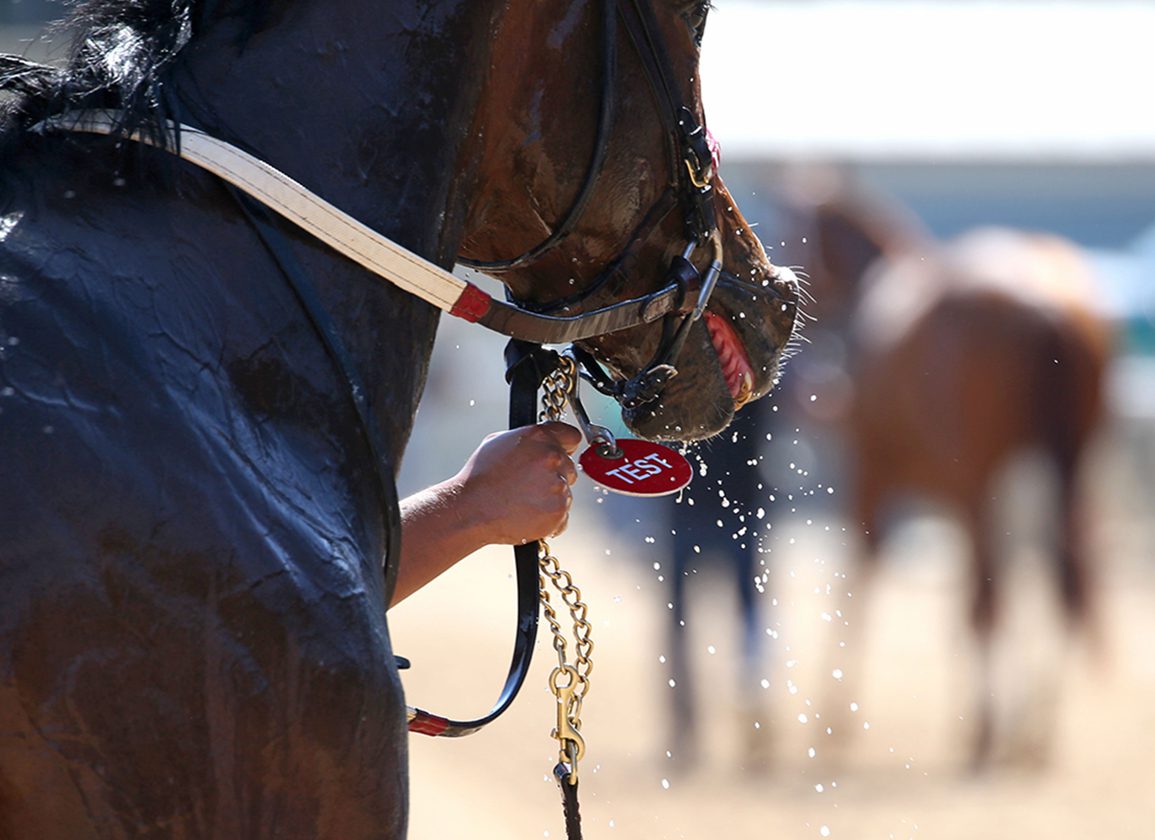By Sue Finley
A federal judge in Texas has issued a 30-day waiting period before the rules of HISA's Anti-Doping Medication and Control (ADMC) can take effect. Those rules initially went into effect Monday, Mar. 27, but will now be suspended until May 1.
During the month of April, therefore, HISA will turn back the job of collecting samples and testing back to the states, said HISA CEO Lisa Lazarus on a Friday night media call.
The ruling, issued Friday, was the latest in a long back-and-forth bitter struggle between pro-HISA and anti-HISA forces.
The ruling, issued Friday by the United States District Court, Northern District of Texas, Lubbock Division, was in response to a motion filed by the National HBPA arguing that the rule violated a provision of the Administrative Procedures Act (APA), which governs the process by which federal agencies develop and issue regulations. It includes requirements for publishing notices of proposed and final rulemaking in the Federal Register, and provides opportunities for the public to comment on notices of proposed rulemaking. The APA requires most rules to have a 30-day delayed effective date. The judge in the case only partially agreed with the motion.
After HISA was found unconstitutional by the Fifth Circuit Court, the group went back to the Federal Trade Commission to amend language that addressed that court's concerns.
“When Congress changes a statute in response to a court's opinion, the result is usually a second wave of litigation: Was the attempted remedy sufficient? What new arguments arise?” wrote the court. “But those larger questions are not yet before the Court. Currently, the plaintiffs make a narrow procedural claim that a new anti-doping rule violates the Administrative Procedure Act because not enough time passed between when the rule was published as final and when the rule took effect. When an agency issues a substantive rule—the type of rule that controls our behavior—it must ordinarily wait 30 days between when the final rule is issued and when it takes effect. This ensures that regulated parties have the time to challenge the rule's validity or bring themselves into compliance. But the anti-doping rule took effect the same day that it was published as final. As a result, the rule issued in violation of the APA, so the plaintiffs—and everyone else—will get their 30 days. The Court enjoins implementation or enforcement of the anti-doping rule until May 1, 2023.”
But the court only addressed that 30-day rule required by the APA, and not the HBPA's larger claims that HISA remains unconstitutional despite the added language.
“Plaintiffs' only new argument is that section 553(d), absent good cause, requires an agency rule to take effect 30 days after the final rule is published. In the interest of judicial economy—and because the plaintiffs only seek emergency relief as to the anti-doping rule—the Court will limit its analysis to the sole issue at hand: whether the FTC failed to comply with section 553's required 30-day waiting period and, if so, whether the plaintiffs are entitled to equitable relief,” the ruling reads.
“We launched Monday, for the most part things ran really smoothly,” said Lazarus. “We collected about 700 tests over the course of the week. Obviously we're disappointed by the decision out of the Lubbock court, but it has to do with the FTC process; it's not strictly related to HISA. As a result, we're going to suspend operations for a few days, and get ready to go again on May 1, and hand it over back to the states to essentially run the programs. We're providing all the assistance we can to the states while respecting the federal order.”
The National HBPA issued a statement about the ruling Friday night.
“We are very pleased that the National HBPA has defeated HISA in the courts yet again,” said National HBPA CEO Eric Hamelback. “It was reckless and irresponsible of the Authority and the FTC to rush to implement these brand-new rules this weekend. Horsemen need time, and we were glad to stand for them once again. The Fifth Circuit Court of Appeals ruled that HISA was unconstitutional in our lawsuit before, and we expect they will do so again.”
HISA's outside counsel John Roach pointed out that states covered by HISA were using the same drug collectors they had been using before Mar. 27, and that they thought the confusion would be limited.
Lazarus said that HISA had considered and rejected the idea of trying to get the 30-day injunction overturned. “Ultimately we're here to serve the industry, and at this point it just creates chaos,” she said. “At this point, it's just 30 days, so we can plan for that, communicate that. So in weighing all the interests, we thought it was best to accept the decision, communicate it, plan for it and use this 30 days to continue to improve our processes. The ruling does make it clear that as of May 1, we're operational again. But I can take a 30-day break better than I can take real questions as to the validity.”
Not a subscriber? Click here to sign up for the daily PDF or alerts.






